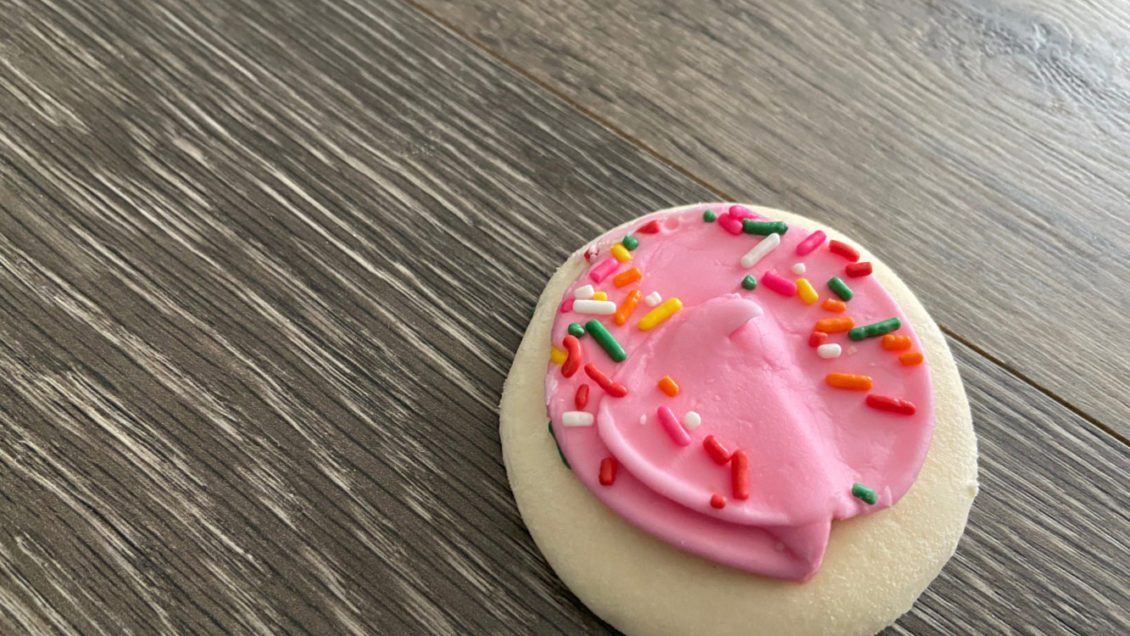If the COVID-19 pandemic has taught us anything, it’s the importance of avoiding germs at all costs, even if it costs you that perfectly delicious cookie you might have dropped to the floor for a split second.
Paul Dawson, a professor in the Clemson University Department of Food, Nutrition and Packaging Sciences, has long been an advocate for common food safety practices. His research of gastronomic urban legends such as the “5-Second Rule” has garnered him local and national media attention. Dawson recently appeared in a TEDxGreenville talk to raise awareness of how everyday habits can spread germs.
He begins his talk by picking up a chocolate bar dropped on the floor and, then, verbally contemplates if he should eat it.
“Most of us, myself included, have been faced with this dilemma,” Dawson said. “We drop a piece of food on the floor and wonder if we should eat it. Do we assume it’s dirty, or do we claim the 5-Second Rule, pick it up as quickly as possible and eat it?”
The 5-Second Rule is an urban myth that states if food is picked up within 5 seconds after it hits the floor, it’s okay to eat. But, because the floor is probably teeming with microbes, Dawson advises the food be thrown away.
One such microbe is salmonella, a nasty bacterium that makes about 1.3 million Americans sick every year. During his presentation, Dawson refers to a test involving bologna dropped on a floor. The test shows salmonella can get on the bologna and transfer to bread in seconds.
“We did find the type of floor covering, carpet or tile, makes a difference in the amounts of bacteria transferred,” Dawson said. “Carpet transferred less salmonella to the bologna.”

Dawson says that, because of the amount and type of bacteria and/or viruses that may be lurking on floors, people should not eat food that has been dropped.
“The bottom line is if you drop food on the floor and there are bacteria and/or viruses present, they’re going to get on your food,” Dawson said. “If you eat food that has been dropped on the floor, your chances of getting sick are pretty high.”
In addition to the 5-Second Rule, Dawson’s TEDx talk also provides insight on how holding menus in a restaurant or deli, blowing out candles on a birthday cake, playing beer pong, sharing popcorn and double-dipping can make people sick as well. To learn more, check out Dawson’s talk, Double-Dipping and Other Disgusting Habits, on youtube.com.
Dawson also has teamed up with food microbiologist Brian Sheldon of North Carolina State University to write Did You Just Eat That?, a book that dives into the origins of food myths. In it, the authors explain why people may want to rethink their habits in the kitchen, bathroom and other public spaces.
“It’s important to remember some of these habits or behaviors can transfer diseases and germs for person-to-person,” Dawson said. “Before the COVID-19 virus appeared, these were kind of urban myths and kind of fun. But now, they should be taken much more seriously.”
TED stands for Technology, Entertainment and Design. It began in 1984 and covers topics from science to business to global issues. TED talks are short talks that last 18 minutes or less. TEDx events allow individuals to share ideas and/or research with their communities. TEDxGreenville was the first TEDx event in South Carolina. It began in March 2010 and includes a diverse group of speakers who address various topics of interest. Past talks and performances are archived on YouTube.
-END-
Get in touch and we will connect you with the author or another expert.
Or email us at news@clemson.edu

